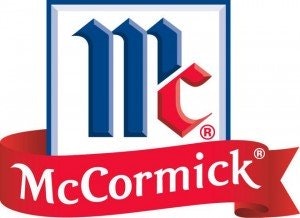Although all companies want it, only a handful of companies have significant pricing power — the ability to raise prices without significant customer defections. Pricing power is only available to companies with competitive advantages, and it is only worth something to long-term investors when the competitive advantages are durable.
McCormick & Company, Incorporated (NYSE:MKC) is an example of a company with pricing power derived from a durable competitive advantage. The company has a dominant share of the spice and seasoning market, with virtually no competition able to threaten its position; the company’s 50% market share is substantially larger than its closest competitor.
The price of spices and seasoning is only a small part of an overall dish, so customers do not mind a large percentage price increase because the absolute increase (in dollar terms) is small compared to the cost of an entire meal. This gives McCormick & Company, Incorporated (NYSE:MKC) pricing power, which enables it to dictate the margins it earns.
CARBO Ceramics Inc. (NYSE:CRR) is an example of a company with similar product economics, but with a fatal twist. CARBO Ceramics Inc. (NYSE:CRR) makes ceramic proppant used in hydraulic fractures. The cost of proppant is small relative to the total cost of a well, yet the benefits of using a good proppant can be enormous. So, like McCormick, CARBO Ceramics Inc. (NYSE:CRR) has traditionally enjoyed pricing power that has enabled it to earn high and stable margins year after year.
However, Carbo recently announced poor results due to increased competition. Although it remains true that CARBO Ceramics Inc. (NYSE:CRR)’s product is a tiny fraction of the cost of the entire operation, its high-quality proppant is quickly becoming a commodity product. Therefore, Carbo’s pricing power may have been permanently impaired.
It is unlikely, however, that McCormick & Company, Incorporated (NYSE:MKC)’s pricing power will meet the same fate as CARBO Ceramics Inc. (NYSE:CRR)’s. Carbo sells a near-commodity product, but McCormick & Company, Incorporated (NYSE:MKC) has strong brands that solidify its competitive position. Customers loyal to brands like McCormick, Zatarain’s, and Thai Kitchen will not switch to a private label product just because it is 20 cents cheaper.
McCormick & Company, Incorporated (NYSE:MKC)’s product is both low-cost relative to its value to a meal and it has loyal customers who do not want to use another brand. That is the hallmark of a wide-moat company.
International Flavors & Fragrances Inc (NYSE:IFF) operates a business similar to that of McCormick. The company’s moat is derived from the small cost of its products and the fact that quality is extremely important to its customers. International Flavors & Fragrances Inc (NYSE:IFF)’ customers cannot risk changing suppliers based on price alone; the company would have to reduce its products’ quality in a major way in order to make the customer switch. This affords the company a great deal of pricing power.
As a result of selling products with significant pricing power derived from a durable competitive advantage, McCormick and International Flavors & Fragrances Inc (NYSE:IFF) have a great deal of control over their profitability. Over the last decade, both companies’ operating margins have remained remarkably stable.

While it is true that neither company can charge anything it wants, both can easily pass on higher input costs to customers — something that less established rivals may be unable to do. This is a powerful tool that will power value creation at both companies for years to come.
Bottom line
McCormick & Company, Incorporated (NYSE:MKC), CARBO Ceramics Inc. (NYSE:CRR), and International Flavors & Fragrances Inc (NYSE:IFF) do not derive pricing power from having the far-and-away best products on the market; their pricing power comes from selling products that have small costs relative to the expense of complimentary products (e.g., the cost of seasoning is small compared to the cost of a steak). In addition, all three companies sell products that greatly enhance their customers’ products. Keep an eye out for this kind of pricing power — it is extremely valuable to investors. However, always make sure the pricing power is durable.
The article A Special Source of Pricing Power originally appeared on Fool.com and is written by Ted Cooper.
Ted Cooper has no position in any stocks mentioned. The Motley Fool recommends McCormick. Ted is a member of The Motley Fool Blog Network — entries represent the personal opinion of the blogger and are not formally edited.
Copyright © 1995 – 2013 The Motley Fool, LLC. All rights reserved. The Motley Fool has a disclosure policy.




